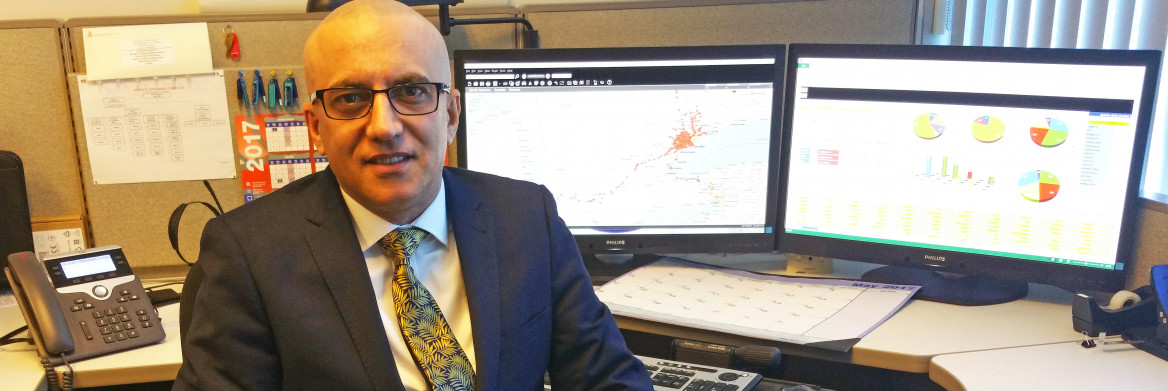When it comes to technology and how it affects policing, RCMP communications data analyst Robert Aboumitri has a determination to innovate. On his prompting, the RCMP created the Communications Data Analysis Team (CDAT), the first unit of its kind in Canada, which Aboumitri leads. Deidre Seiden spoke to him about what mobile phone data can reveal to police and how it can inform investigations.
Why did you push for the creation of CDAT?
Early in 2008, I was deployed by the RCMP to Lebanon to assist in the investigation of the ex-Prime Minister who was assassinated. We had a lot of phone data — every single phone call in the country of Lebanon in a database.
We were pioneering analytical techniques to exploit and get results out of that data. And when I came back to Canada, I started to preach to the RCMP that there's a lot more in phone data than meets the eye — everybody has a unique digital print.
What is communications data?
Essentially it's metadata that we obtain, legally and lawfully, from various providers, such as Rogers. It's data about communication. It's not the content of the data that we receive and examine, it's the details of the data.
So when it comes to communications metadata, it's information about the phone calls themselves. It's not just about user of phone A contacted user of phone B anymore. It's the device number, their contacts, routing [cell sites], the date, time and duration, the serial number of the handset, etc. If a suspect used multiple phone numbers [several SIM cards] on that same device, we could identify that.
We make sense of that, create visuals to explain it and create a comprehensive report for the investigative team.
How do you make sense of what you collect?
We normalize it and organize it in a way to turn it from data to information. A date on its own means nothing. When I turn a date into the day of the week, I can find patterns of usage that repeat themselves, say on Sunday. When I turn a date into a month, I can see which month a suspect's visited a general area the most. Now I've turned data into information.
Once I have information and once I have multiple layers of information, then we start to understand what happened after and then what does that mean. That's when we produce intelligence and provide recommendations.
It sounds like a form of surveillance.
In a way, but in the past, which is impossible to undertake in any other way. That's the beauty of it. If you've made a mistake in the past using the phone, you can't undo that mistake. For example, we can show that a phone was in the general area of a crime when a crime was committed, and we can take that one step further and show that for the 24 months before that they were never in that area.
Fingerprints can be wiped clean, and clothes burned, but digital data from phone records can't be erased by the criminal.
How does your unit help investigators?
In this digital age, we're leaving crumbs of digital data behind everywhere we go and in everything that we do. Modern mobile devices are ubiquitous. They go to sleep with us, speak to our friends, and access the websites we're interested in. They do everything that we like to do and go with us everywhere we go. And they're our camera, our alarm clock, our calendar, our web-browsing device — cellphones are the Swiss Army knife of technology.
The frequent usage of these devices really turns them into a tracker in the hand of the user. And if you know how to leverage that information and make sense of it, there's so much you can do with it. If investigators aren't leveraging this to their advantage, they're missing out.
We provide a perspective that no other field can provide. We can corroborate a lot of evidentiary information that otherwise couldn't be corroborated through any other means. It gives us a bit of an advantage that we otherwise don't have. Since we live in an age where digital devices are omnipresent, we need to leverage that to enhance our ability to conduct our investigative work in particular and police work in general.
